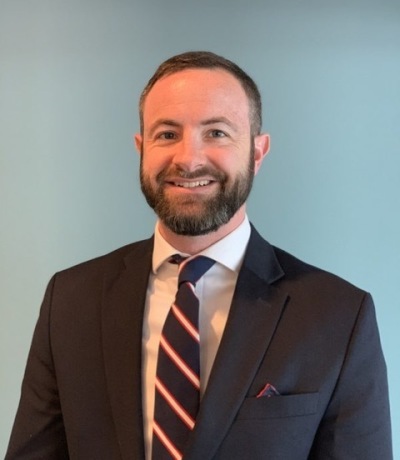'An experience of restoration’ in Fort Worth’s episcopal saga

Vacated church properties, deferred maintenance, and deactivated utilities. Almost everything old is new again in the messy property handovers between the Episcopal Church and Anglicans who departed the denomination.
Only this time the roles have flipped.
More than a decade after the Episcopal Church initiated litigation against the Episcopal Diocese of Fort Worth, the Texas Supreme Court ruled one year ago in favor of the diocese, which separated from the denomination. After the U.S. Supreme Court declined to hear an appeal by the Episcopal Church, legal proceedings effectively reached their conclusion in February.
Five separate church properties were handed over from the Episcopal Church’s newly re-named Episcopal Church in North Texas to the Anglican Church in North America’s Episcopal Diocese of Fort Worth. Much of the property within those buildings was removed by Episcopalians and remains in dispute before an appeals court.
Property wars
The property situation in the Diocese of Fort Worth in some ways mirrors other jurisdictions in which Anglicans were required to vacate properties awarded by courts to the Episcopal Church.
In other dioceses, the Episcopal Church either sold reclaimed properties or reestablished Episcopal congregations within them (“shadow congregations” that initially worshipped off-site). In Fort Worth, Anglicans are doing the same.
At dispute are church buildings (“real property”) and the contents of those buildings (“personal property”). Both were agreed by the two parties to be the property of the Episcopal Diocese of Fort Worth at the time of the 2008 split, the parties contested which entity was legally that diocese. The unanimous Texas Supreme Court decision found that the diocesan corporation now led by Anglican Bishop Ryan Reed was, for the purposes of Texas corporate law, the rightful Episcopal Diocese of Fort Worth.
But legal judgment hasn’t resolved everything: recent weeks “have been a whirlwind” for those involved, according to a laywoman and clergy spouse helping as part of the Anglican congregation which has returned to worship at All Saints’ Church in Fort Worth.
“They stripped the building. They stripped Christ too,” Cynthia Pigéon wrote in an e-mail interview about arriving at a church building emptied of nearly everything by Episcopalians, including the crucifix and altar pieces. In other churches, pews, pianos, and even small kitchen items were removed.
“Until the churches began to be emptied, we didn’t expect such a thing to happen,” Diocese of Fort Worth Communications Director Suzanne Gill explained. Gill provided photos from All Saints’ of the main altar, parish hall, and parlor, each stripped bare. Nothing was left in classrooms or nurseries; all offices were emptied, and no computers or financial records have been returned.
The music library – consisting of many bankers’ boxes of sheet music – had been removed and seen in another building by diocesan representatives; it has not been returned.
Returning to worship
After a District Court judge ordered the personal property returned in late April, it took “a lot of work over several days to restore items to their proper places,” Gill described of All Saints’, from the altar to hundreds of books. The Judge’s order was later stayed by an Appeals court, which had Episcopalians and Anglicans submit briefs in May concerning personal property (Kirk Petersen at The Living Church has a report on that here.)
Another church, St. Stephen’s in Wichita Falls, also reopened. Almost everything there has been returned after the building had been stripped (pictured above), except for a pipe organ that requires a technician, according to Fr. John Munson, Dean of Fort Worth’s Northern Deanery.
Munson describes a “very cooperative” return of items with the local Episcopal priest, and Sunday worship services have resumed.
Personal property isn’t the only holdup: financing restoration of old buildings is a significant hurdle to reestablishing worshiping communities there. St. Elizabeth’s Church in River Oaks had many items returned and was beginning to prepare to host worship services. The building is in need of extensive repairs, including roofing, electrical work, and a line for natural gas.
“We were very optimistic there, but we have had to face the reality of deferred maintenance,” Gill assessed.
The property needed a new Certificate of Occupancy and inspections. A lack of utilities revealed major problems, according to Fr. Jay Atwood, Diocese of Fort Worth Canon to the Ordinary.
“The gas line to the building was destroyed by an intoxicated driver in March and this insurance claim with her company has not been resolved resulting in no hot water. The estimated cost to replace the supply line for the gas service is $23,000,” Atwood relayed. Power was restored and revealed “major electrical issues” which would need to be resolved including bring the electrical service up to code. Restoration of water service also revealed problems, and the building has a “major roof leak” due to deferred maintenance.
“The problems associated with bringing the building back to a condition for establishing a new congregation were determined to be too great,” Atwood wrote via e-mail to IRD. Bishop Reed, with the advice of the diocesan Board of Trustees, decided to consider a property sale, to the disappointment of the priest committed to work with the building.
An Anglican congregation is willing and ready to move into the property of St. Luke in the Meadow as soon as possible, but hardly any items have been returned and utilities were disconnected by the outgoing Episcopal congregation.
“Getting the property available for services has been impossible,” Atwood said. A new Certificate of Occupancy will need to be created (unless an old one can be found) which will allow resumption of utilities.
Utilities aren’t a problem at St. Christopher’s Church, as a pre-school remained in session on the property. There, most items were removed and nothing has been returned. Sunday services were begun May 16 using items gathered from other churches. Services will continue for at least a month to determine the viability of the location.
‘Jesus is Lord’
Pigéon says that those in the congregation and the diocese are thankful to the courts for the provision of property, but there is also an awareness that All Saints’ is among a small minority of Anglicans whose property has been restored to them.
“For our brothers and sisters across this nation, who have been stripped of their buildings, I see only a travesty of justice and religious persecution,” Pigéon wrote.
Despite the property challenges, returning to the All Saints’ campus has been positive for the congregation.
“It is an experience of restoration, of a remnant returning home from exile,” Pigéon described after years worshipping off-site. “It is not merely about the building. It is about being able to be in the building and worship in the Way that believes, ‘Jesus is Lord’ – as it has been said and meant by all Christian believers, everywhere throughout [Anno Domini] time.”
Update [6/8/2021]: Fr. Munson reports that the pipe organ was returned last night to St. Stephen’s Church. The church awaits an organ builder from San Antonio to assemble the pieces.
Originally published in The Institute on Religion and Democracy.



























